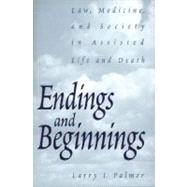
Note: Supplemental materials are not guaranteed with Rental or Used book purchases.
Purchase Benefits
What is included with this book?
| Introduction<BR> | |
| The Role of Law in Our Intimate Lives<BR> | |
| Science in the Service of Medicine and Law<BR> | |
| Assisted Reproduction: Do We Need a Legislative Definition of the Family?<BR> | |
| Creating One's Own Death: Is There a Constitutional Right to Die?<BR> | |
| Chronically Ill or Terminal?: A Question for Legislatures<BR> | |
| The Role of Physicians in Generational Continuity<BR> | |
| The Role of Physicians in Our Dying: Relievers of "Suffering"?<BR> | |
| Physicians' Constitutional Rights: Relievers of "Pain"?<BR> | |
| Physicians' Legislative Privileges to Assist Life or Death<BR> | |
| Professionalism, Autonomy, and Medical Progress<BR> | |
| Selected Bibliography<BR> | |
| Index |
The New copy of this book will include any supplemental materials advertised. Please check the title of the book to determine if it should include any access cards, study guides, lab manuals, CDs, etc.
The Used, Rental and eBook copies of this book are not guaranteed to include any supplemental materials. Typically, only the book itself is included. This is true even if the title states it includes any access cards, study guides, lab manuals, CDs, etc.